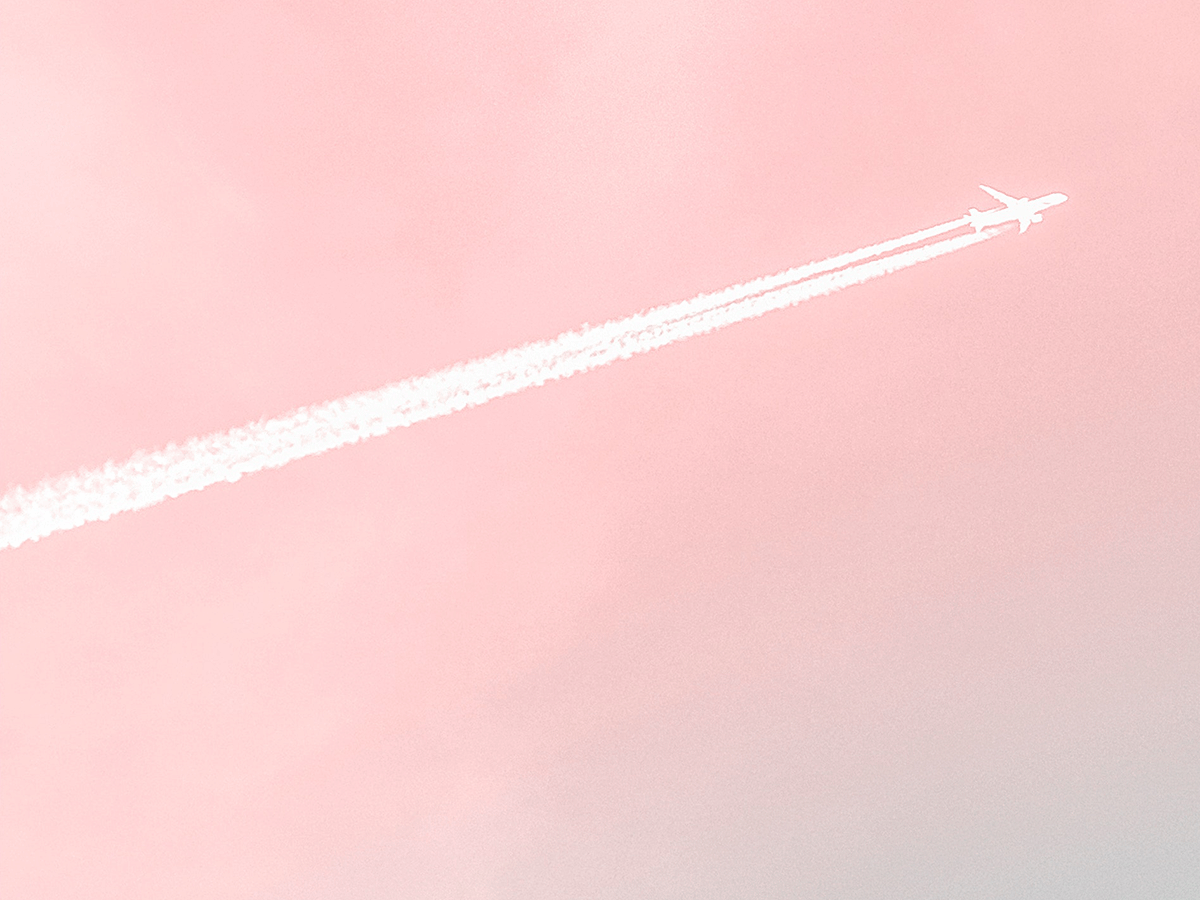
Foods to avoid before flying to prevent “jet bloat”
Just prepping for a flight can be stressful—what with the frantic last-minute packing, rush to the airport, and long security lines. If you’re not mindful of what you eat before you board the plane, you could experience jet bloat. “It’s the uncomfortable feeling associated with flying due to the expansion of gastrointestinal gases at a high altitude,” says Katie Hake, a bariatric dietitian at Indiana University Health.
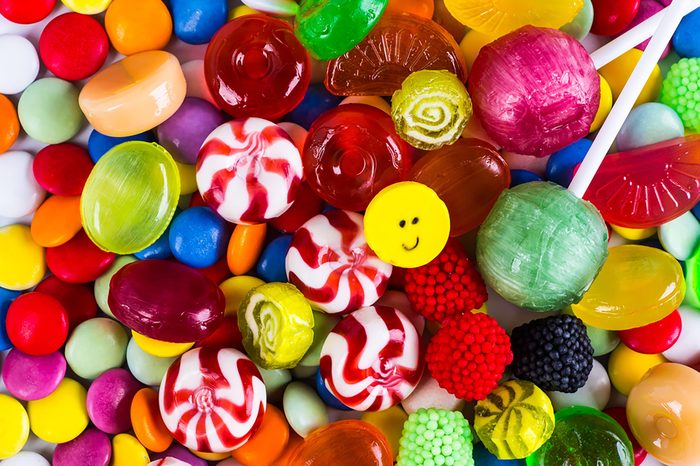
Avoid: Sugar-free gum and hard candy
If you’re trying to satisfy your sweet tooth by chewing sugar-free gum or sucking on hard candy, you may want to rethink unwrapping the candy and gum before flying. “When you chew gum or suck on hard candy, you swallow more often than normal. Part of what you’re swallowing is air,” says Hake. Although the extra air applies to both sugar-free and traditional gum, sugar-free gum and candy can be especially meddlesome for your tummy because it contains sorbitol, an additive that gives a sweet taste but doesn’t digest well in the small intestine, causing stomach distress for some people, especially those with irritable bowel syndrome (IBS).
Psst: Check out what happens to your body when you stop eating sugar.
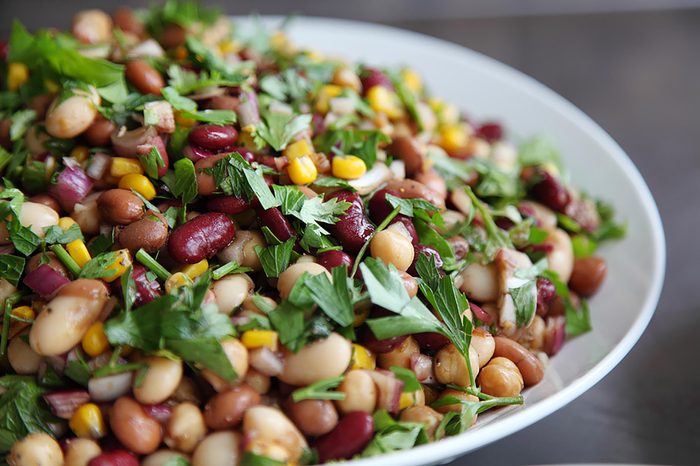
Avoid: Beans and cruciferous veggies
Eating a nutritious salad chock-full of veggies like broccoli, kale, cauliflower, beans, and kohlrabi before flying may seem like the ticket. It’s a lighter and calorie-friendly option after all—but you may want to pass on these high-fibre, gas-promoting veggies before flying. “According to an article published in the New Zealand Medical Journal, flying increases flatulence, including pain, bloating, dyspepsia, and pyrosis,” says nutritionist Cassandra Suarez, RDN. The bloating feeling is magnified by the changes in air pressure.
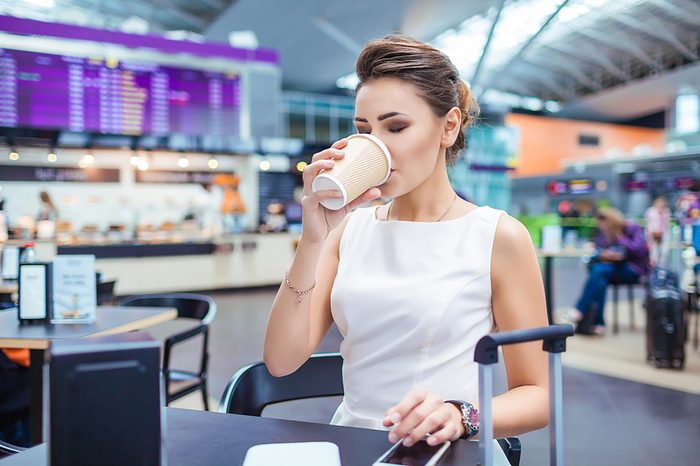
Avoid: Caffeinated beverages
A few sips of joe in the morning probably won’t make much difference before you’re airborne, but ordering the venti size could. “Caffeinated drinks can cause headaches and insomnia, disrupting your circadian rhythm and making jet lag all that much worse in certain cases,” says Suarez. However, Suarez says, 2016 research published in Science Translational Medicine points to caffeine as being a jet lag fighter in certain circumstances. The scientists suggest that drinking a coffee when travelling westward and changing timezones could help with jet lag, but if you’re travelling east, caffeine can make it worse. (See how Meghan Markle fights jet lag.)
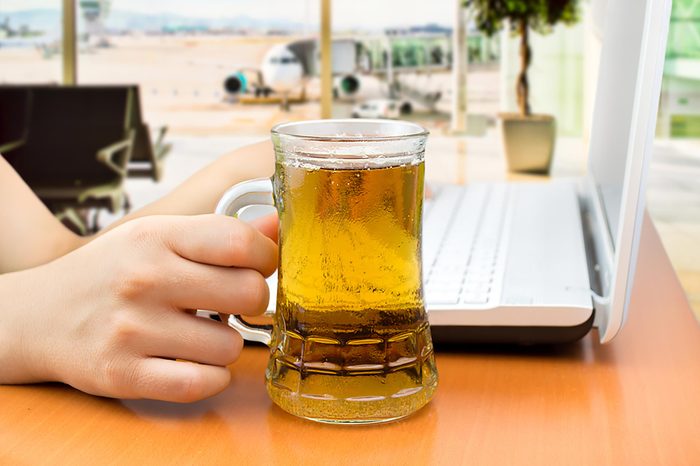
Avoid: Alcohol
When you’re busy travelling, normal habits like staying hydrated go by the wayside. You’re not as likely to have your trusted water bottle at hand and order a Margarita at the airport bar instead. “As tempting as it is to have a drink to relax, it can cause problems,” warns Stephanie Schiff, RDN, registered dietitian, Huntington Hospital, Huntington, New York. “Alcohol can dehydrate the body. The air in a plane is already much drier than the air outside, with humidity levels at around 10 to 20 percent.” Schiff recommends sticking to your normal routine of drinking water—pack your empty water bottle and fill it up at a water bottle filling station or water fountain after you’ve gone through security; save the margarita for your destination. If you choose to drink alcohol, remember it’ll make you hungry, so you may want to pack extra snacks.
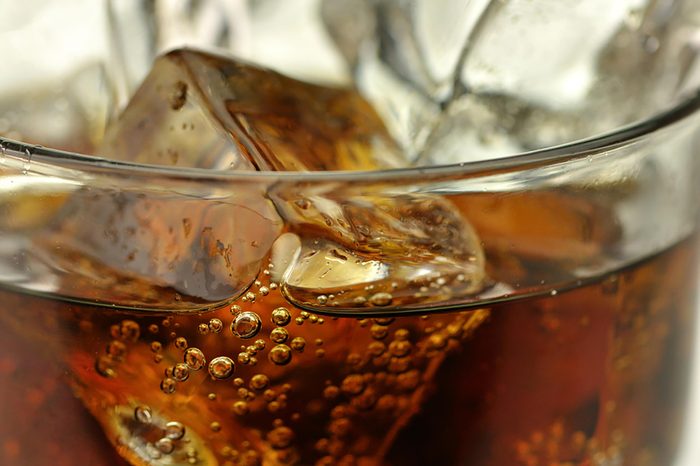
Avoid: Carbonated beverages
It’s difficult to turn down a refreshing free soda on the plane when you’re parched. But a soda won’t do you any favours. “Carbonated beverages can make you gassy and uncomfortable. And since you’re not moving around much, that gas bubble may just sit there. Or escape when you don’t want it to,” warns Schiff. (Check out other foods that’ll give you gas.)
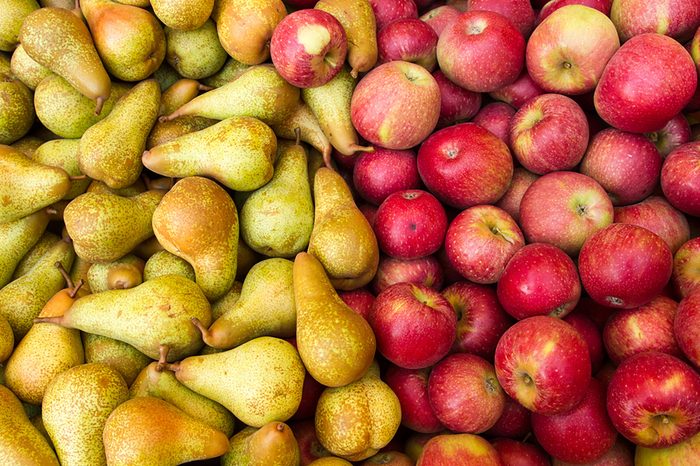
Avoid: Gassy fruits
Who knew some fruits can cause gas? Some fruits contain a sugar called sorbitol (yes, related to the sugar-free gum sweetener), which has laxative effects and causes excessive gas. Fibre can also contribute to gas. The biggest fruit offenders are apples, pears, peaches, and prunes, and they can produce gas, diarrhea, and tummy pain. “Most fruits are just fine to eat prior to a flight, but peeled apples would be better than apples with the skin on,” says Schiff. Here’s how to reduce stomach bloating.
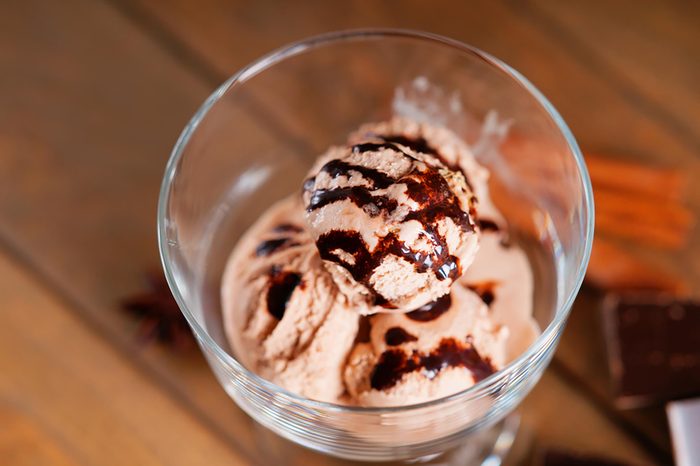
Avoid: Dairy
A hot fudge sundae is a delicious way to pass the time in the terminal, but if you indulge this dairy treat you could be moo-ing in agony later. Dairy products contain a type of sugar called lactose that can be difficult for your digestive tract to process if you are sensitive to it. “Lactose will just lay in your stomach and cause discomfort,” says Schiff. Also, check out the signs you may be lactose-intolerant.
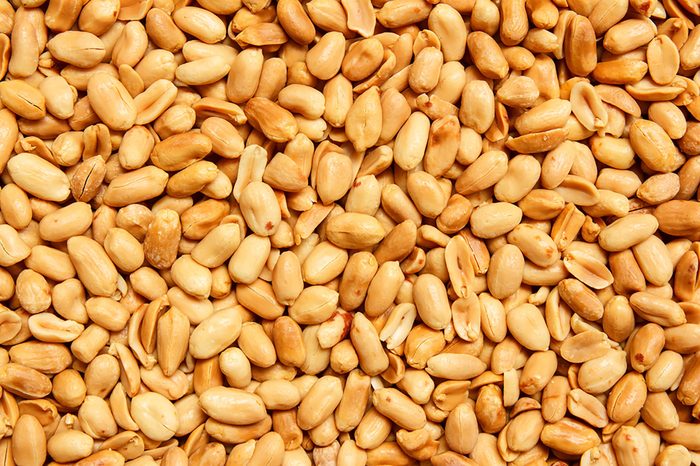
Avoid: Peanuts and pretzels
We’re not knocking free snacks, but Hake says high-sodium foods like the free pretzels and nuts offered in-flight can cause fluid retention, resulting in dehydration. Being low on fluids will slow digestion, and that’s the beginning of bloat. Find out how much sodium is too much.
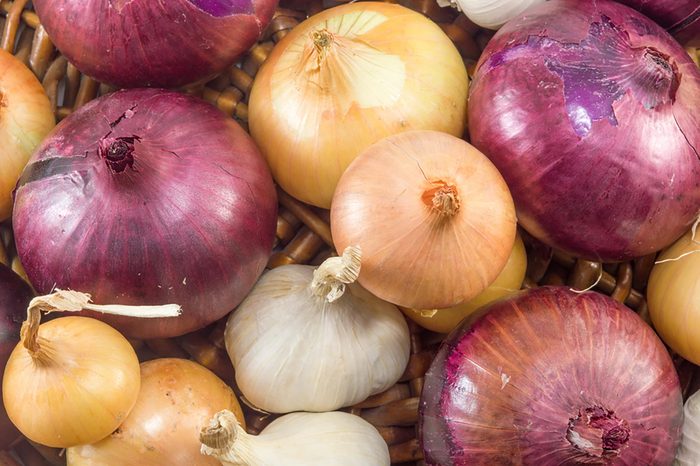
Avoid: Garlic and onions
Garlic and onions smell divine when you’re sautéing them, but they’ll be hard on you and your seatmates later. “Eating foods like garlic and onions, which may contain volatile sulfurous substances, can be released through your sweat,” says Saurez. “They are absorbed into your blood and your lungs after digestion, giving you bad breath and body odour.” The oils used in fried foods are another culprit that can curse you with a Pig Pen-like reek. Hydrogenated oils aren’t easily digested and cause a stinky air about you or they may try to make a gassy escape when you weren’t expecting it. Learn other sneaky reasons behind your body odour.
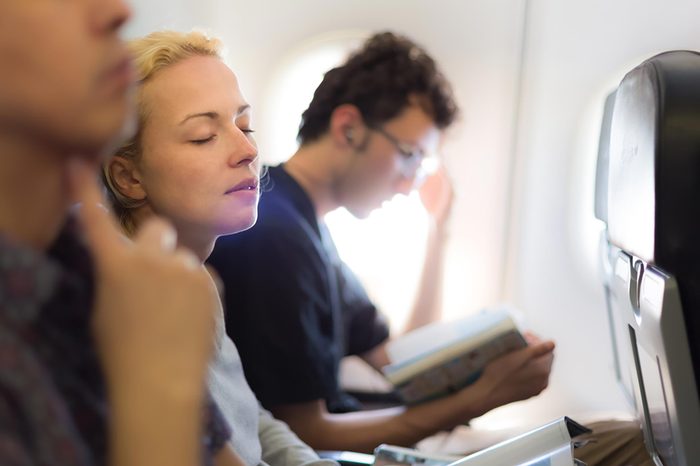
Consider: Timing your meals
The eating approach known as intermittent fasting has more benefits than just weight loss—it may help with jet lag. New 2019 research published in the journal Cell suggests that eating and your circadian rhythm are intricately linked; previous research suggests that taking a break from eating while flying—and then noshing soon after you reach your destination—may ease jet lag. Light has the most influence on the body clock, but the brain also responds to when you eat; when you have your meal at an off time or in the dark (as often happens when you’re travelling across time zones), the conflict between the circadian cues of food and light disrupts your body’s rhythms and worsens jet lag. A brief fast (but don’t cut back on water!) puts the clock on hold, and you restart it when you eat that meal after touching down.
Next, learn how to preserve sleep hygiene while travelling.
